
by Scott Frederick | Feb 25, 2016 | News
 Companies of all sizes are increasing their use of outsourced logistics services as they seek greater efficiency in their supply chains. Here is a 3PL checklist to help you find the best third party logistics partner for your situation. 3PLs bring valuable benefits to companies in a number of ways:
Companies of all sizes are increasing their use of outsourced logistics services as they seek greater efficiency in their supply chains. Here is a 3PL checklist to help you find the best third party logistics partner for your situation. 3PLs bring valuable benefits to companies in a number of ways:
- Reducing transportation costs. 3PLs often have scale and leverage advantages that allow them to negotiate and access better rates than shippers can do on their own. They can also eliminate unwanted administrative costs by efficiently finding and securing capacity, monitoring and auditing carrier and rate compliance, and executing optimal mode selection (all of this often with the aid of specialized technology).
- Improving customer satisfaction. 3PLs can support customer satisfaction improvement goals by helping with accurate order fulfillment, improving on-time pickups and deliveries, providing greater shipment visibility, and reducing losses and damages.
- Providing global expertise. 3PLs can help businesses navigate the more complex aspects of importing and exporting by providing documentation, customs brokerage, duty optimization, and freight forwarding solutions. This can help companies introduce their products to new markets or source lower-cost materials for production.
- Reducing supply chain risk. 3PLs can help mitigate risks by ensuring companies are using licensed and safe transportation carriers, providing logistics talent acquisition expertise, and staying abreast of special governmental and environmental rules and regulations.
With the above benefits in mind, here is a very simple 3PL checklist you may want to consider when evaluating your partner options:
Credibility?
- Is your potential partner financially stable with a long history of successful operations? Do they have reputable customers from whom they have received testimonials? Have they won any significant awards or recognition?
Assets or Non-Asset?
- Do they manage their own truck fleet or assets? Do they provide non-asset brokerage solutions? Do they have dedicated warehousing and do they manage warehousing using any of their own staff?
Domestic Operations?
- Are they able to manage all transportation modes, including LTL, truckload, expedited, rail, air, and ocean services? Do they have adequate staff with sufficient expertise to manage all aspects of domestic transportation? Can they provide dedicated staff and resources for a complete managed transportation solution?
Global Capabilities?
- Do they have global staff located around the world? Are they able to manage all aspects of imports and exports? Can they manage all international transportation modes, including ocean, air, ground, and rail? Can they manage complex project cargo from start until finish? Do they provide customs broker solutions and can they assist with global trade compliance?
Leading Technology?
- Do they have a capable transportation management system (TMS)? Do they have international freight forwarding track and trace capabilities? Do they have a warehouse management system (WMS)? Can their technology solutions be integrated into your back-office systems?
Ancillary Services?
- What additional services can they bring to your company? Can they help with things like global sourcing, specialized warehousing, linguistic solutions, cargo insurance, and financing options?
Cultural Fit?
- Do they have a customer service-oriented culture? Do they have a mission statement or mantra that resonates with you? Are they proud of, and do they showcase, their people? Do they have a history of successes and “going to bat” for their customers?
Hopefully this gives you a good starting checklist if you are, or will soon be, evaluating 3PL partners. Obviously, we feel very confident that Logistics Plus has the credibility, capabilities, and cultural fit that works well for most companies and industries. If you’d like to engage us in your evaluation process, request for quote (RFQ), or request for proposal (RFP) – or if you simply want to talk – just let us know. We’re here to help and we’re ready to do so.

Looking for more outside reading on this subject? Check out his article from SuppyChain247.com
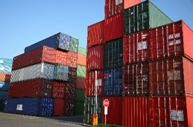
by logisticsplus | Nov 5, 2015 | News
 The International Maritime Organization (IMO.org) has recently approved changes to the Safety of Life at Sea (SOLAS) Convention requiring the verification of container weights. Here are five things shippers should know – and do – in regards to the forthcoming revised rules for container weights:
The International Maritime Organization (IMO.org) has recently approved changes to the Safety of Life at Sea (SOLAS) Convention requiring the verification of container weights. Here are five things shippers should know – and do – in regards to the forthcoming revised rules for container weights:
- Verify All Container Weights!
All shippers will be responsible for verifying the weights of their containers before being loaded aboard any ship. A verified gross mass document should be handed to the shipping line, then the terminal, who will then determine whether or not to accept the container.
- Be Prepared!
The effective date of this new legislation is not until July 1st, 2016, but shippers need to start making arrangements now in order to ensure they are ready when its time.
- Don’t Risk It!
Not declaring the gross mass of your container, may not only lead to its rejection from the terminal but could also cost you a large sum of money in fines, sanctions or in some cases, even jail time.
- Pick A Verified Weighing Option:
Shippers have two options; they can either weigh the entire packed container using certified and calibrated equipment, or they can sum up the weights of each individual item utilizing an approved process.
- Talk To Your Freight Forwarder
If you are using a freight forwarder, make sure they are experienced and reputable (like Logistics Plus), and that you establish a well-founded communication system with them. This way you can ensure compliance on both sides, and prevent non-shipment or delays of any of your goods.
If you have any questions, feel free to contact the international experts at Logistics Plus at pricing@logisticsplus.com or click the button below to get a quick quote on your next international freight shipment.

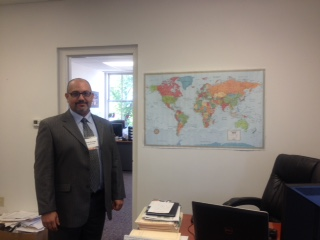
by logisticsplus | Nov 4, 2015 | News
 One of the primary promises we make to our customers is to deliver their products to the right place, on time and intact. This has enabled Logistics Plus to earn a reputation for great service while growing on a global scale. After establishing offices in the United States, Europe, Asia and Africa, Logistics Plus has added another important region to its global network: the Middle East.
One of the primary promises we make to our customers is to deliver their products to the right place, on time and intact. This has enabled Logistics Plus to earn a reputation for great service while growing on a global scale. After establishing offices in the United States, Europe, Asia and Africa, Logistics Plus has added another important region to its global network: the Middle East.
In 2013, when Imad Murtada first joined Logistics Plus as a business development manager, it only had one logistics agent in the region. It wasn’t long, however, until Imad, who brought with him many years of logistics experience in the region, utilized his connections and expertise to connect the Middle East to the world through Logistics Plus. Today, Logistics Plus operates out of eight offices located in Bahrain, Egypt, Saudi Arabia, Libya and the United Arab Emirates.
“We went from nothing to generating over $1.5 million in revenue from our business in Bahrain and Egypt alone,” says Imad. “This is only the beginning. Some of the largest companies in the region do business with us now. Wescosa and Cristal in Saudi Arabia, and Food National and Transilwrap in Egypt, are just a few examples.”
Operating in the Middle East is not easy: the logistics industry there is competitive and requires extra-ordinary customer service skills. Not to mention the constant demand for high quality services and low rates. “You have to reply to customer e-mails within no more than fifteen minutes,” Imad explains “If you don’t, some other company will take your customer.”
Each country in the Middle East also has its own set of rules, which is why it is very essential that logistics employees are aware of these rules and abide by them. To address cultural differences, Logistics Plus hires professionals that are familiar with these cultures and can speak the local languages fluently.
The number one key to succeeding in the region, according to Imad, is to build solid customer relationships with customers. “Customers in the Middle East value the relationship you have with them,” he says. “If they like you, they will be loyal customers.”
When asked about the political situation, Imad says that although the situation in the Middle East is volatile in some areas, that has not affected existing business. That’s because most shipments are made through either ocean or air freight, and “blacklisted” areas do not even have to be involved in the process. Despite the volatile political situation in some of the regions, business is still flourishing in other parts of the Middle East. In fact, according to the Brookings Institution, this year the city of Dubai was ranked the fifth highest performing metropolitan economy in the world. Last month, Logistics Plus opened its first office there.
Imad is very optimistic about the future of Logistics Plus in the Middle East, and he sees the potential for even more expansion in the region. “We are still relatively new in the area,” Imad says. “We are still building our brand and reputation, and we are doing a great job. As a result, more and more businesses are calling us for logistics solutions in the region.”
For more information about different logistics services in the Middle East, please contact:
Imad Murtada (Business Development Specialist): imad.murtada@logisticsplus.com
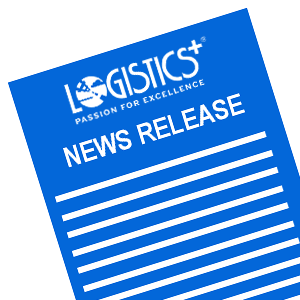
by Scott Frederick | Nov 2, 2015 | News
FOR IMMEDIATE RELEASE
Logistics Plus India Wins 140 MW Solar Logistics Project
800 Containers Being Transported from Malaysia to India for Azure Power
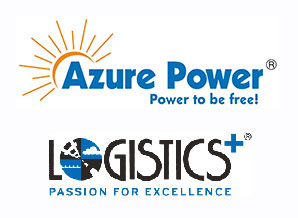 ERIE, PENNSYLVANIA, November 2, 2015 – Logistics Plus Inc., a worldwide provider of transportation, logistics and supply chain solutions, announced today that its India division has won a major logistics project for Azure Power. As part of the project, 800 forty-foot high-cube (HQ) containers will be transported from the First Solar manufacturing facility in Malaysia and delivered to Azure Power in India. The end-to-end logistics project will take approximately six months to complete and will provide 140 megawatts (MW) of solar power to the southern region of India.
ERIE, PENNSYLVANIA, November 2, 2015 – Logistics Plus Inc., a worldwide provider of transportation, logistics and supply chain solutions, announced today that its India division has won a major logistics project for Azure Power. As part of the project, 800 forty-foot high-cube (HQ) containers will be transported from the First Solar manufacturing facility in Malaysia and delivered to Azure Power in India. The end-to-end logistics project will take approximately six months to complete and will provide 140 megawatts (MW) of solar power to the southern region of India.
“We are excited to have been awarded this great opportunity to help Azure Power bring solar energy to India,” said Sundreysh Sarup, Managing Director for Logistics Plus India. “This project is a confirmation of our solar industry expertise and a continuation of our ongoing focus to provide logistics solutions to solar energy companies around the world.”
The new cargo project is one of many that Logistics Plus has handled over the past several years for the solar energy industry. Last year, Logistics Plus worked with another global solar power company on a logistics project to coordinate delivery of three million solar panels to the world’s largest solar panel farm (at the time) in southern California. Earlier this year, Logistics Plus worked on a similar logistics project to manage delivery of solar panels to Central America.
About Azure Power
Azure Power is India’s leading independent solar power producer and offers clean and affordable solar energy to its customers with zero upfront cost and operational expenses. Azure Power’s vision is to prove that solar energy is the most affordable and reliable power generation source for forward-thinking power consumers. The basic purpose of Azure Power is to be the lowest cost producer of solar power in the world. By providing solar energy as a service, Azure Power manages the entire project process for its customers, reduces costs of generating electricity, and provides long term predictable pricing. For more information, please visit www.azurepower.com
About Logistics Plus Inc.
Logistics Plus Inc. provides freight transportation, warehousing, global logistics, and supply chain management solutions through a worldwide network of talented and caring professionals. Founded in Erie, PA by local entrepreneur, Jim Berlin, 20 years ago, Logistics Plus has been repeatedly recognized as one of the fastest-growing transportation and logistics companies in the country. With a strong passion for excellence, its 350+ employees put the “Plus” in logistics by doing the big things properly, and the countless little things, that together ensure complete customer satisfaction and success.
The Logistics Plus® network includes offices located in Erie, PA; Fresno, CA; Los Angeles, CA; San Francisco, CA; Evansville, IN; Detroit, MI; Kansas City, MO; Charlotte, NC; Lexington, NC; Buffalo, NY; Cleveland, OH; Charleston, SC; Greenville, SC; Nashville, TN; Dallas, TX; Fort Worth, TX; Laredo, TX; Houston, TX; Bahrain; Belgium; Canada; Chile; China; Colombia; Egypt; France; Germany; India; Indonesia; Kazakhstan; Libya; Mexico; Poland; Saudi Arabia; Turkey; and UAE; with additional agents around the world. For more information, visit www.logisticsplus.com or follow @LogisticsPlus on Twitter.
Media Contact:
Scott G. Frederick
Vice President, Marketing
Logistics Plus Inc.
(814) 240-6881
scott.frederick@logisticsplus.com
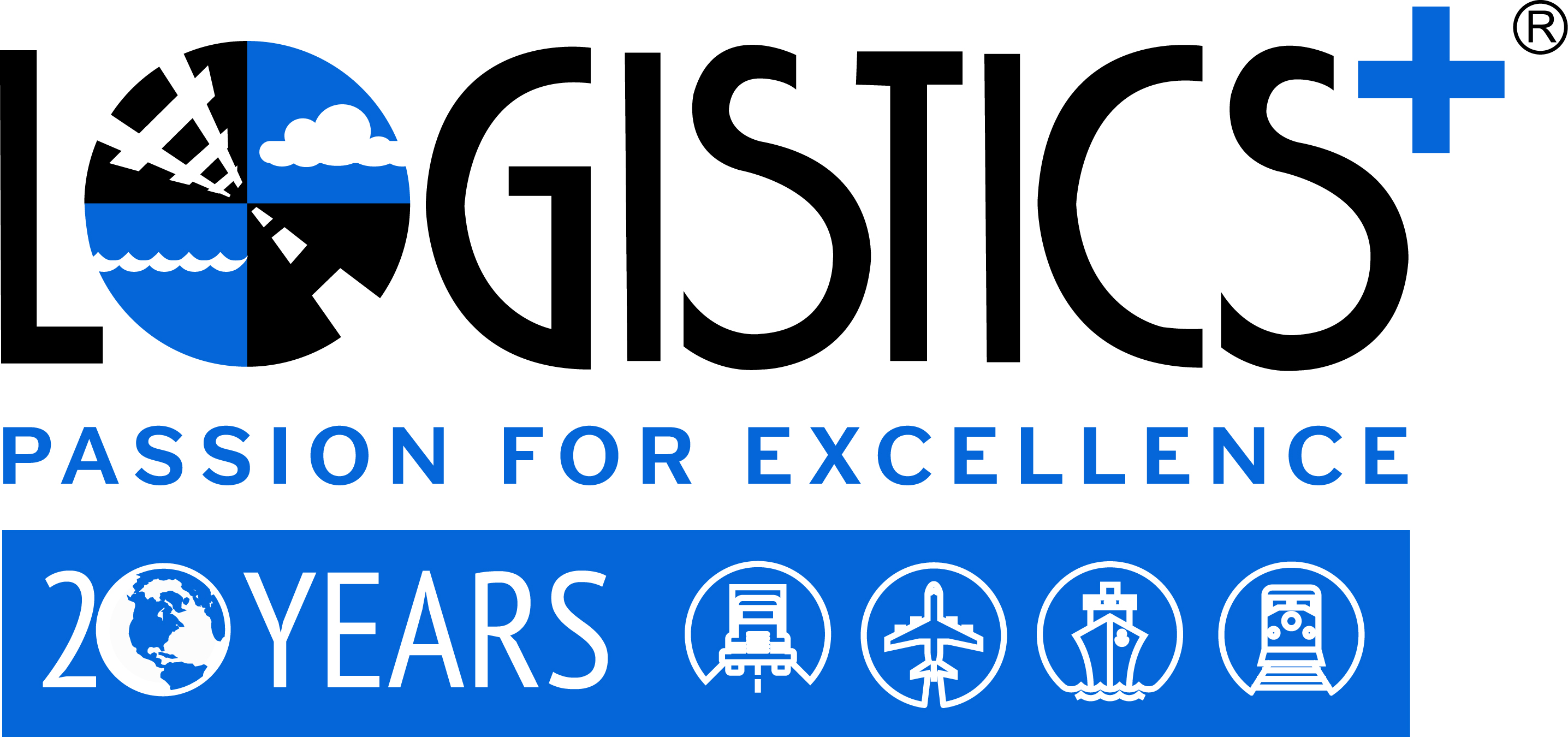
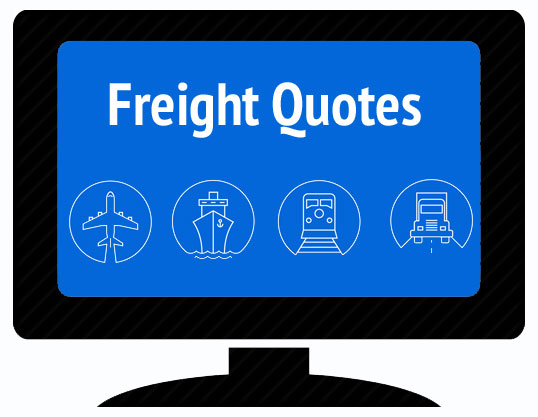
by Scott Frederick | Oct 20, 2015 | News
 Time and accuracy are both important when it comes to shipping. That’s why it’s important to provide correct and accurate information when requesting freight quotes for transportation services. If you’re shipping LTL, truckload, expedited, or international, here are some general guidelines to help ensure you receive a prompt and precise rate estimate from your freight broker or freight forwarder.
Time and accuracy are both important when it comes to shipping. That’s why it’s important to provide correct and accurate information when requesting freight quotes for transportation services. If you’re shipping LTL, truckload, expedited, or international, here are some general guidelines to help ensure you receive a prompt and precise rate estimate from your freight broker or freight forwarder.
Know what you are shipping and be clear about it.
This seems obvious, but it is surprising how many people try to get freight quotes without providing specific details on what it is they’re shipping. The commodity type and description matter. Special rules apply to certain raw materials, or items that may be imported or exported. Household goods and used products have different limitations on insurance and which carriers have authority to handle the shipment. Less-than-truckload (LTL) shipments have very complex and detailed freight classifications and density rules that may impact how your shipment is rated. So provide this detail up front if you can (in fact, if you already know your NMFC item number or your HTSUS code, go ahead and provide it in your quote request).
Know the size, weight and dimensions of your shipment.
Your shipment dimensions and weight should include whatever packaging is used to ship your goods, e.g., cartons, pallets, totes, etc. Having accurate weight and dimensions will avoid inspection and reweighing fees, and messy invoice corrections down the road. Weight and size are also particularly important for air freight shipments. Air freight prices are based on weight and size while ocean freight prices are generally just based on size.
Know where you are shipping to and from.
Again, this sounds obvious, but in the world of domestic freight shipping, it’s important for the carrier to know whether they are picking up at, or delivering to, a place of business or a residential location. Shipments to special locations, e.g., airports, container freight stations, convention centers, grocery warehouses, etc., may also require additional services or fees. When it comes to international shipping, your freight forwarder will need to know if your import or export is being shipped door to door, door to port, port to port, port to door. Being ready with addresses for the pickup and delivery locations is the best way to get the most accurate freight quote and service estimate.
Request your freight quote close to when you are shipping.
Transportation rates are very volatile with variables such as fuel costs, available capacity, and shipper demand. These variables are often not fully known until closer to your actual shipment date. Unless you’re a giant shipper like Walmart or Costco, you’re dealing with a constantly changing spot market for transportation rates. Even if you have negotiated LTL or truckload transportation rates, you will still be subject to weekly fuel price changes. As a rule of thumb, freight quotes for LTL or truckload shipments are generally good for about 7 days; whereas, freight quotes for air or ocean shipments are good for about 30 days.
If you’d like a free freight quote from the award-winning transportation and logistics team at Logistics Plus, simply click the button below. We provide quick, no-obligation freight quotes for LTL, truckload, expedited, international, project cargo, and more. Provide us with as much information as you can (the more the better), and we’ll take it from there!


 Companies of all sizes are increasing their use of outsourced logistics services as they seek greater efficiency in their supply chains. Here is a 3PL checklist to help you find the best third party logistics partner for your situation. 3PLs bring valuable benefits to companies in a number of ways:
Companies of all sizes are increasing their use of outsourced logistics services as they seek greater efficiency in their supply chains. Here is a 3PL checklist to help you find the best third party logistics partner for your situation. 3PLs bring valuable benefits to companies in a number of ways:





 ERIE, PENNSYLVANIA, November 2, 2015 – Logistics Plus Inc., a worldwide provider of transportation, logistics and supply chain solutions, announced today that its
ERIE, PENNSYLVANIA, November 2, 2015 – Logistics Plus Inc., a worldwide provider of transportation, logistics and supply chain solutions, announced today that its 

